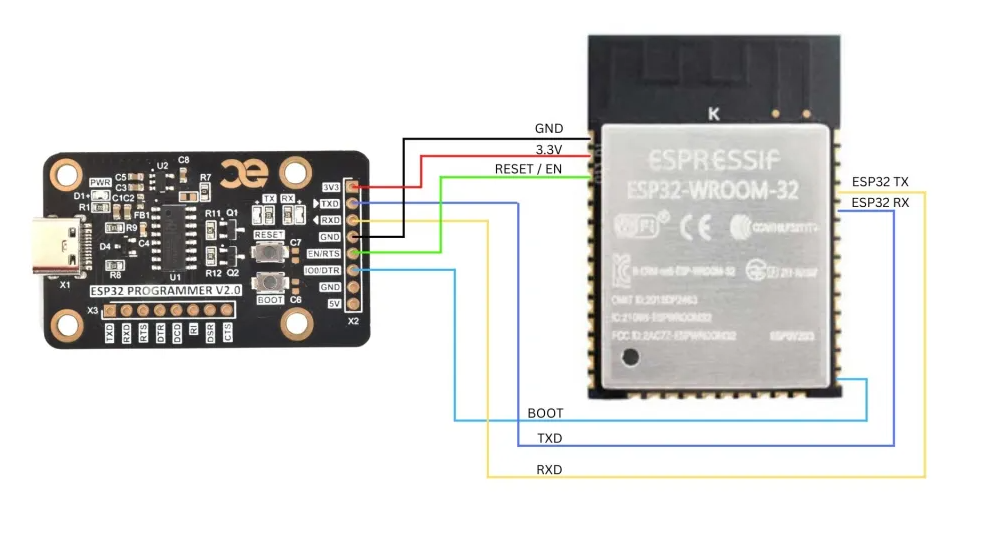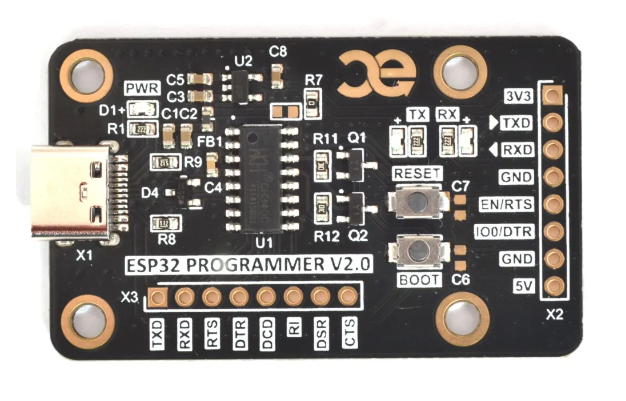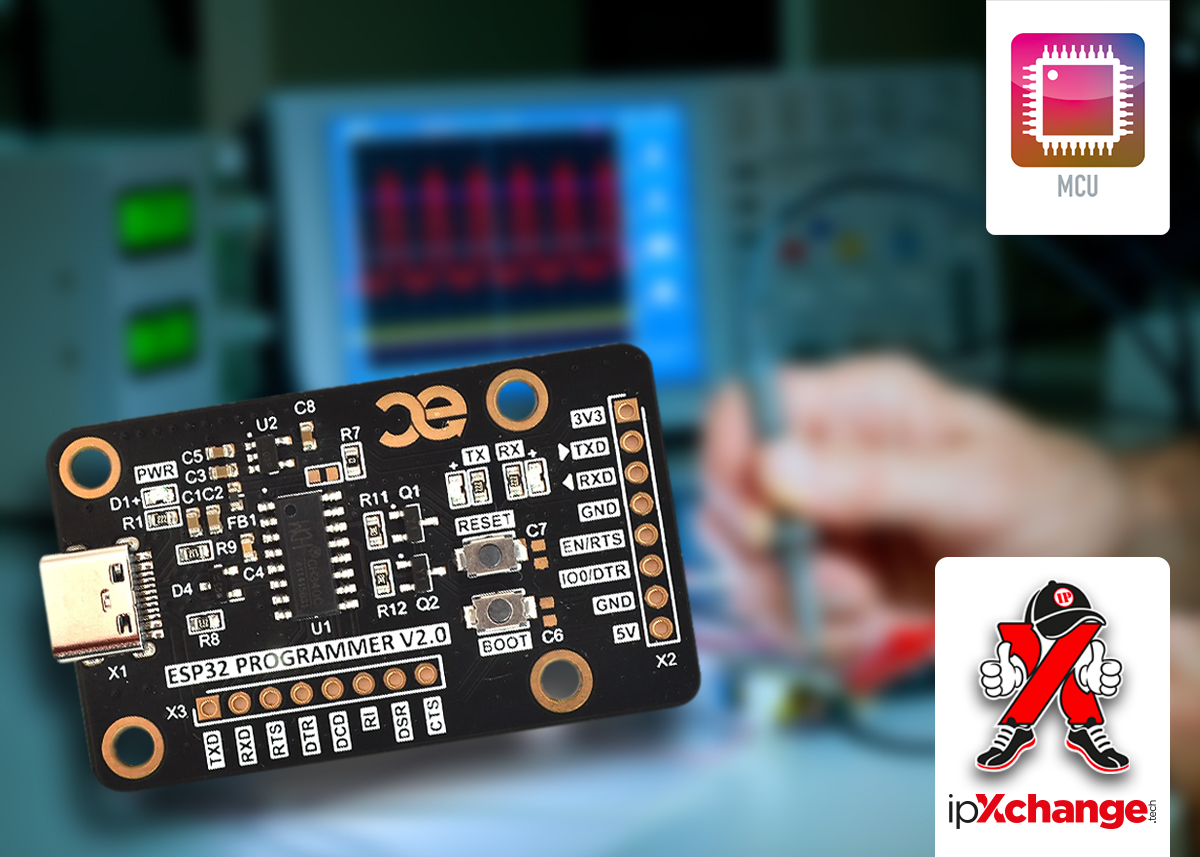CAPUF Embedded’s latest version of their ESP32 Programmer board provides an easy way for designers to flash ESP8266, ESP32, and other MCU devices that require boot pin and reset pin control and UART RX/TX interfacing. A USB-C connector makes for easy, reliable connections to a PC during programming, and the ESP32 Programmer V2 now features two differently configured 8-pin, 2.54-mm pitch connector options for greater programming flexibility – the board is shipping with a header (not soldered) for connection to matching pins built into your own custom ESP32-based board.
As an example, the programmer board interfaces with an ESP32 device as illustrated in the following diagram, which shows how to lay out the programming header in your own design:

The X2 connection uses the following pinout, with options for 3.3-V or 5-V devices on each end:
- 3.3 VDC (Max. 100 mA)
- TXD
- RXD
- GND
- Reset/RTS
- Boot/DTR
- GND
- 5 VDC (Max. 500 mA)
Alternatively, the new X3 connection allows access to additional pins:
- RXD
- TXD
- Reset/RTS
- Boot/DTR
- DCD
- RI
- DSR
- CTS
Presented with a footprint of just 50 x 30 mm, CAPUF’s board features indicator LEDs for power, RX, and TX communications, and switches for reset and boot. The ESP32 Programmer V2 can also be used as a USB to UART adapter for direct integration within a product for easy reflashing, but for greater security, it is recommended to only use this device during development and production. Reflashing after production can be done using a secured physical interface or Over-The-Air (OTA) updates.
If you are among countless others enjoying the benefits of Espressif’s MCUs and have a commercial project in mind, apply to evaluate this technology using the form below. For smaller quantities, purchase may be required, and for a more economical solution, you may wish to consider the previous version of this board.
ipXchange also supports evaluation of a growing number of Espressif devices, so learn more by following this link to see the available options.
(Images provided by CAPUF Embedded)


